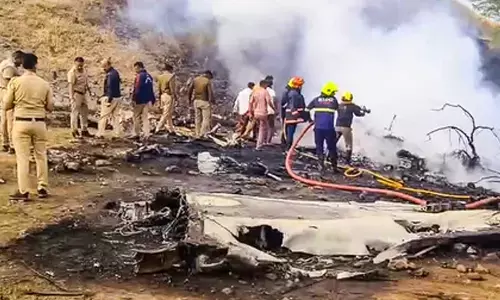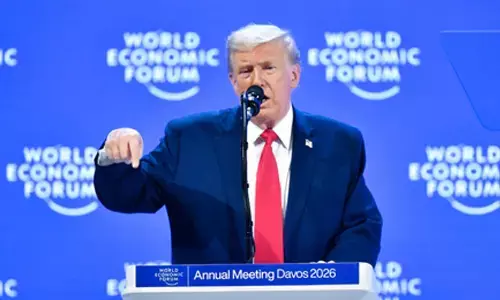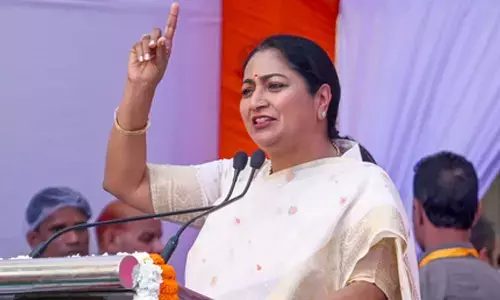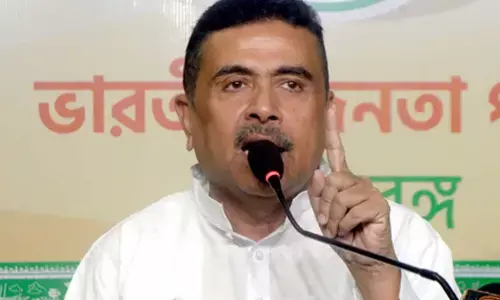Losing The Narrative Leads Congress Party Nowhere
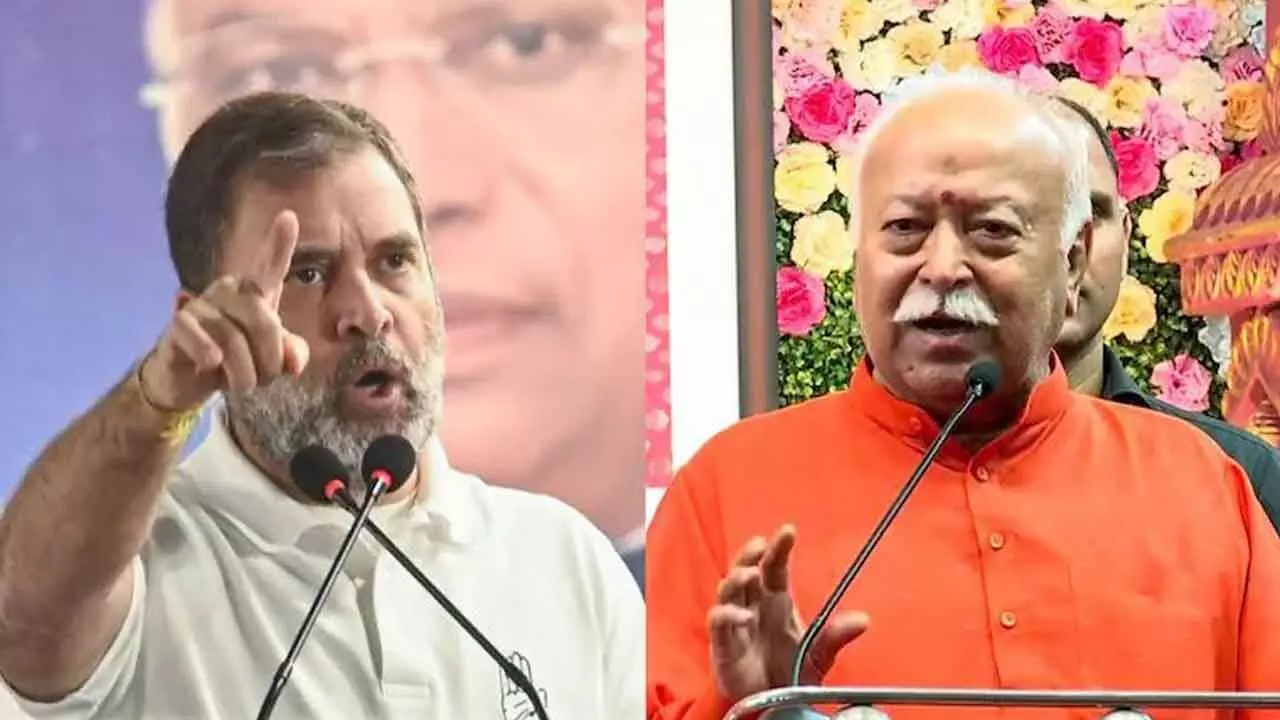
In slamming RSS chief’s contention on ‘gaining true independence’ with Ram Mandir, Rahul Gandhi landed in a bitter controversy, stating the Congress is having to wage a battle with the Indian state itself. BJP latched on to his faux pas. Rahul Gandhi’s rhetoric marks a departure from traditional political opposition and veers into a space that challenges the very institutions safeguarding India’s democracy. Embittering the Budget session with counter-productive arguments and focus on peripheral yet emotive issues, lawmakers would be doing a disservice to the nation. Political leaders must move beyond inflammatory rhetoric and focus on addressing the nation’s most pressing challenges through democratic and constitutional avenues. Constructive debate, policy-driven discussions, and collaborative governance should take precedence over personal attacks and sensationalism
The upcoming budget session of the Indian Parliament, scheduled to commence on January 31, is poised to be a pivotal political event. With Hindenburg Research no longer generating controversies around the Adani Group or the Rafale deal, political attention is shifting toward other contentious issues.
The Congress party, under the leadership of Rahul Gandhi, has zeroed in on Rashtriya Swayamsevak Sangh (RSS) chief Mohan Bhagwat, making him the latest focal point of criticism. Gandhi’s recent call for Bhagwat’s arrest on charges of treason has intensified the political discourse ahead of the session.
Mohan Bhagwat recently stated that the true spirit and essence of the Indian Constitution has yet to be fully realised. He emphasised that while India gained political freedom in 1947, it only achieved “true independence” with the consecration of the Ram Mandir in Ayodhya.
Rahul Gandhi interpreted Bhagwat’s remarks as an affront to India’s freedom struggle and constitutional values. Addressing Congress leaders and party workers at the new All India Congress Committee (AICC) headquarters in Delhi, Gandhi denounced Bhagwat’s statement as treasonous. He asserted that in any other country, such remarks would warrant arrest and trial.
Bhagwat’s comments can be viewed through different lenses. Supporters might argue that he was highlighting the cultural and spiritual dimensions of India’s independence, rather than undermining its constitutional framework. However, Gandhi contends that such statements diminish the monumental sacrifices made during India’s struggle for independence, disrespecting the nation’s historical legacy.
Escalating his rhetoric, Gandhi claimed that the Congress is no longer merely opposing political organisations like the Bharatiya Janata Party (BJP) and the RSS but is now engaged in a broader battle against the Indian state itself. He argued that the BJP and the RSS have deeply infiltrated national institutions, transforming a political rivalry into a confrontation with the mechanisms of the state. This assertion raises significant concerns about the nature of India’s political discourse, as it implies a challenge to the democratic institutions that form the foundation of governance.
Such statements, framing the state as an adversary, could be perceived as undermining the country’s democratic integrity. Critics argue that if Gandhi deems Bhagwat’s remarks treasonous, his own statements about combating the state carry similar implications. While the Congress has the democratic right to question government policies and hold the ruling party accountable, portraying this struggle as a fight against the state itself can be seen as extreme and potentially counterproductive.
Senior Congress leaders might attempt to rationalise Gandhi’s comments by suggesting they have been misinterpreted or taken out of context. Nonetheless, the implications of declaring a fight against the state are profound. This rhetoric marks a departure from traditional political opposition and veers into a space that challenges the very institutions safeguarding India’s democracy.
The Congress party’s ongoing narrative of institutional distrust has had tangible consequences in the past. For example, the party’s previous stances contributed to significant market instability, leading to a $108 billion erosion in stock market value when they rocked the Parliament with Hindenberg report on Adani. This downturn adversely affected numerous middle and lower middle-class investors. Persisting with this narrative risks further alienating voters and undermining economic confidence.
Rahul Gandhi’s speech at the AICC headquarters also revealed contradictions. He passionately celebrated India’s rich diversity, emphasising the equality of languages, cultures, and communities as enshrined in the Constitution. Simultaneously, he accused the BJP of seeking to establish a centralised, authoritarian regime that suppresses marginalised voices. Gandhi’s claim that the BJP operates like a secretive organisation intent on silencing Dalits, minorities, backward castes and tribal communities echoes a narrative that seems to be losing traction among the electorate.
Congress President Mallikarjun Kharge joined Gandhi in condemning Bhagwat’s statement. Kharge warned that Bhagwat could face social repercussions if he continued making controversial remarks. He highlighted the Congress party’s pivotal role in India’s freedom movement, contrasting it with the RSS’ absence during that struggle. However, continually invoking the freedom struggle as a political tool may have diminishing returns, particularly since most contemporary political leaders were born post-independence.
Recognising the evolving political landscape is crucial for the Congress party. Allies like Sharad Pawar have distanced themselves from certain contentious narratives, such as the Hindenburg report on Adani, which the Supreme Court ruled lacked credible evidence. Similarly, opposition parties like the Samajwadi Party and the Trinamool Congress have been cautious about aligning with Congress-led controversies. As the Parliament’s budget session approaches, fostering constructive and solution-oriented political discourse is paramount. Citizens deserve accountability and transparency from all political actors. It is vital for voters to demand responsible behavior and meaningful discussions on governance rather than being subjected to divisive and polarising narratives.
The health and resilience of India’s democracy depends on respectful engagement between political parties and the state. Political leaders must move beyond inflammatory rhetoric and focus on addressing the nation’s most pressing challenges through democratic and constitutional avenues. Constructive debate, policy-driven discussions, and collaborative governance should take precedence over personal attacks and sensationalism.
Economic growth, social justice, and national security are among the many critical issues that warrant focused attention during the budget session. Political parties must prioritise these concerns, setting aside partisan battles to work towards solutions that benefit the nation. Engaging in meaningful debate on policy reforms, fiscal strategies, and welfare measures will better serve the public interest than engaging in polarising rhetoric. The upcoming budget session provides an opportunity for political leaders to demonstrate statesmanship and a commitment to democratic values. By fostering a climate of constructive dialogue, Parliament can function effectively in addressing the needs and aspirations of the people. It is imperative for political parties to rise above personal rivalries and work collaboratively to strengthen India’s democratic fabric.
In conclusion, the budget session stands as a critical juncture for Indian politics. The focus must shift from inflammatory statements and adversarial posturing to constructive governance and policy-driven discussions. Responsible political behavior and respect for democratic institutions are essential for fostering national unity and ensuring India’s continued progress. It is time for all political leaders to engage thoughtfully, prioritise the welfare of citizens, and uphold the values enshrined in the Indian Constitution.





